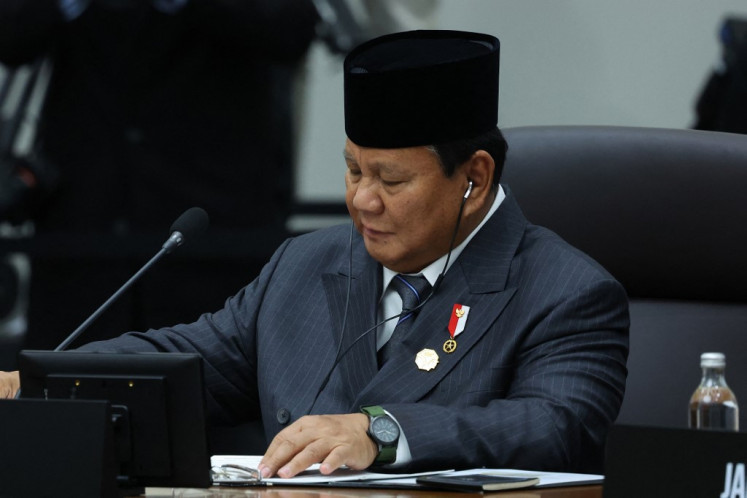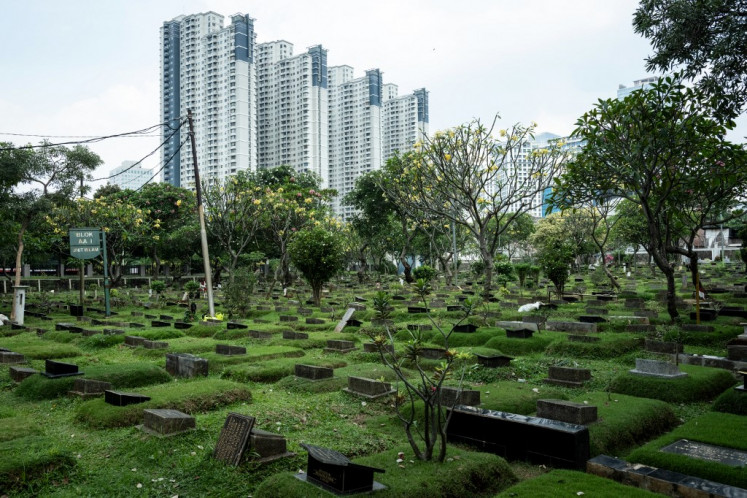Popular Reads
Top Results
Can't find what you're looking for?
View all search resultsPopular Reads
Top Results
Can't find what you're looking for?
View all search resultsPoverty forces parents to keep autistic child on a leash
Unable to afford medical bills, a poor family in Kronjo, Tangerang, had decided to keep an autistic boy on a leash
Change text size
Gift Premium Articles
to Anyone
U
nable to afford medical bills, a poor family in Kronjo, Tangerang, had decided to keep an autistic boy on a leash.
When The Jakarta Post paid a visit to the family’s home in Saga farming village, 10-year-old Agus was tied by a chain so that he could not come in contact with others in the neighborhood. The family said the measure was necessary to pacify the boy.
“Agus frequently behaved so badly towards people in the neighborhood. Often times he lost his temper without any reason. We also had a hard time finding him when he would suddenly disappear,” his older brother Fajar said.
Agus was apparently not always like this.
Fajar said that Agus behaved normally until the age of three, when autistic symptoms began to surface.
“After his third birthday, Agus had tantrums and we often saw him talking to himself. He also frequently left home, sometimes not coming back for days,” he said.
Fajar suspected that the tantrums may have had something to do with the death of their father, Haryono,
Their mother Haderi, 45, was pregnant with Agus when Haryono passed away. The sudden death of Haryono may have had a deep psychological impact on Haderi. Fajar said his mother went into depression.
After learning that Agus was suffering from autism, the family could only do little to find appropriate medical treatment for him, given their financial condition.
So rather than having to search for Agus whenever he left home, the family decided to put a leash on him.
“We have no choice. We are afraid that Agus could hurt others,” Fajar said.
The family has tried to contact the local administration to seek help, but their calls have fallen on deaf ears,
Soon after the death of Haryono, Haderui worked to support the family as a farm labor collecting unhusked rice left over from harvests in Tenjo Ayu, Serang.
A local leader said that Agus was not the only one. Neighborhood unit head Tohir said that there are at least five autistic children who had not received aid from the authorities.
“They are all the same age as Agus. We can only hope that the Tangerang Regency Administration will soon pay attention to them,” he said.
Kronjo village chief Rudi Mahfudin said he was not familiar with the plight of the autistic children, but said that he would soon pay them a visit and would write to Tangerang Social Affairs Agency to help them.
“I am worried about this because I don’t think we are still living in a time when people could be put on a leash for a health or mental problem,” he said
A report from Rumah Autis, a foundation for autistic children of low-income families, said that poor families with autistic children tend to be incapable of meeting the child’s special needs, thereby drastically reducing chances for improvement.
Rumah Autis said that the ideal period for detecting specific conditions is before the age of two, adding that children between the ages of two and five tend to respond to therapy faster.
Autistic children can usually be identified by their unique behavior, such as repetitive movements, hyperactivity or attachment to certain objects.










